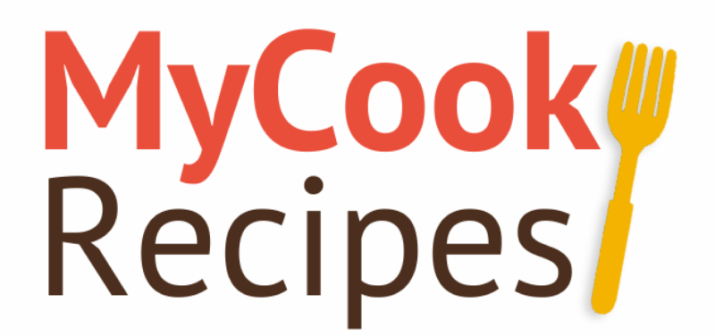
As more people adopt plant-based diets, many wonder whether eggs fit into this way of eating. While some people on plant-based diets avoid all animal products, others, especially those following a flexitarian or vegetarian approach, choose to include eggs for their nutritional value. So, do eggs truly belong in a plant-based diet?
A plant-based diet emphasizes whole, minimally processed plant foods like vegetables, fruits, grains, and legumes. Though eggs are animal products, many people on plant-forward diets consider including them. If you’re exploring how to balance eggs with plant-based meals, check out this guide to incorporating eggs into a plant-based diet. Ethical concerns also play a role, and you can read more about these issues in this discussion on the ethical aspects of egg consumption.
Nutritional Benefits of Eggs in a Plant-Based Diet
Eggs provide many essential nutrients that can complement a plant-based diet. They offer high-quality protein, delivering all the essential amino acids. Eggs also supply key nutrients like vitamin B12, choline, and omega-3 fatty acids, which can be harder to find in strictly plant-based foods.
Including eggs in meals can enhance the absorption of fat-soluble vitamins like vitamin E and carotenoids from plant-based dishes. This combination makes eggs a useful addition to vegetable- and grain-rich meals.
Health Concerns: Eggs and Cholesterol in a Plant-Based Diet
While eggs have many benefits, they also raise concerns due to their cholesterol and saturated fat content. Some studies suggest that egg consumption may raise blood cholesterol levels in certain people, potentially increasing the risk of heart disease. However, recent research indicates that eating eggs in moderation (up to seven per week) doesn’t significantly affect heart disease risk for most individuals.
If you’re following a plant-based diet to improve heart health, limiting egg consumption might be a good idea. For those interested in alternatives, this guide on plant-based meal ideas offers options for replacing eggs in your diet.
Ethical Considerations: Are Eggs Truly Plant-Based?
Ethically, eggs don’t fit within a plant-based diet because they come from animals. Many vegans and vegetarians avoid eggs due to concerns about animal welfare, particularly in industrial egg production. If you prefer to include eggs while upholding ethical standards, consider purchasing certified humane or pasture-raised eggs.
If you’re looking for more plant-based recipes that don’t rely on eggs, try exploring this article on creative uses for sourdough discard to discover more options.
Environmental Impact
Producing eggs has a higher environmental footprint than growing plant-based foods like grains and legumes. Egg production consumes more water and energy and contributes to greenhouse gas emissions. Still, compared to other animal products like meat and dairy, eggs have a relatively smaller environmental impact. Including eggs occasionally in a plant-forward diet can still help reduce your overall environmental footprint.
Incorporating Eggs into a Plant-Based Diet
For those who decide to include eggs in their plant-based meals, moderation is important. Here are a few ways to add eggs while maintaining a plant-forward diet:
- Vegetable Frittata: Combine eggs with spinach, mushrooms, and bell peppers for a nutrient-dense breakfast.
- Grain Bowls with Poached Eggs: Add a poached egg to a quinoa or brown rice bowl, topped with roasted vegetables and avocado.
- Salads with Hard-Boiled Eggs: Enhance a leafy green salad by including hard-boiled eggs for extra protein.
Looking for more meal inspiration? Check out this step-by-step guide to a plant-based detox for more plant-based recipes with or without eggs.
Alternatives to Eggs in a Plant-Based Diet
For those who prefer not to eat eggs, several plant-based alternatives can mimic their role in recipes:
- Flaxseed or Chia Seeds: Combine these seeds with water to create a gel-like consistency for baking.
- Tofu Scramble: Use crumbled tofu, seasoned and sautéed, as an alternative to scrambled eggs.
- Aquafaba: Use the liquid from chickpeas (aquafaba) as a substitute for egg whites in meringues or mousses.
FAQs
Are eggs considered plant-based?
No, eggs aren’t plant-based since they come from animals. However, some people on vegetarian or flexitarian diets include them in moderation.
Are eggs healthy for a plant-based diet?
Eggs provide high-quality protein, vitamin B12, and omega-3 fatty acids, but they also contain cholesterol. Eating eggs in moderation is key to balancing their benefits with health concerns.
How many eggs can you eat on a plant-based diet?
Most guidelines suggest consuming up to seven eggs per week without significantly raising heart disease risk, depending on your health profile.
What are good plant-based alternatives to eggs?
Popular alternatives include flax eggs, chia eggs, tofu scrambles, and aquafaba for those following a strict plant-based diet.
Conclusion: Are Eggs OK on a Plant-Based Diet?
Whether eggs belong in a plant-based diet depends on your personal dietary choices. Eggs provide valuable nutrients and can fit into vegetarian or flexitarian eating plans, but they’re not considered plant-based by strict standards. If you prefer to avoid eggs, there are plenty of plant-based alternatives available. Regardless of your choice, focusing on a balanced, nutrient-rich diet is essential.
For more plant-based meal inspiration, explore this guide on activating sourdough discard, which features egg-free recipes.
